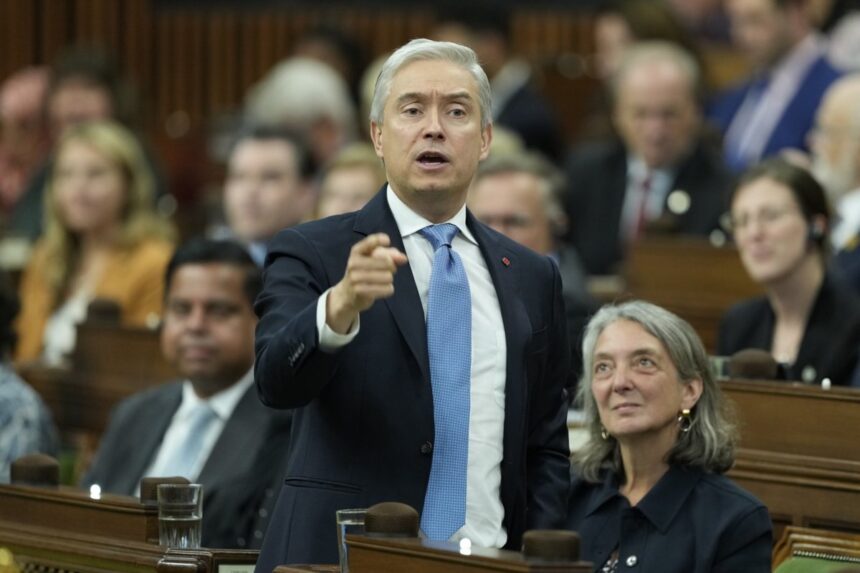Canada’s digital services tax will move forward despite growing U.S. opposition, Industry Minister François-Philippe Champagne confirmed yesterday. The tax, targeting tech giants that generate substantial revenue in Canada, remains on track for implementation this year after years of delay.
“We will not pause the digital services tax,” Champagne told reporters following a cabinet meeting in Ottawa. “This is about fairness for Canadians.”
The 3% tax applies to large digital corporations with global revenue exceeding €750 million and Canadian revenue over $20 million. Companies like Meta, Google, and Amazon would face taxation on revenue generated through Canadian digital services, including online marketplaces, social media platforms, and advertising.
This decision comes amid mounting pressure from Washington. U.S. Trade Representative Katherine Tai recently warned of potential retaliatory measures, calling Canada’s approach “discriminatory” against American companies. Several U.S. business groups have joined the chorus of opposition, with the U.S. Chamber of Commerce urging Canada to reconsider.
“The pushback isn’t surprising,” says Michael Geist, Canada Research Chair in Internet and E-Commerce Law at the University of Ottawa. “But Canada’s position reflects growing international frustration with how digital giants operate across borders while minimizing their tax footprint.”
The tax has been years in the making. Initially announced in the 2021 federal budget, implementation was repeatedly delayed as Canada waited for an OECD-led global tax agreement to materialize. With international negotiations stalling, Finance Minister Chrystia Freeland moved forward with the made-in-Canada solution.
For Ottawa residents, the impact may be indirect but significant. Local businesses competing with digital giants have long complained about an uneven playing field.
“Small businesses in Ottawa pay their fair share of taxes while watching tech behemoths use complex structures to minimize theirs,” explains Karim Haggar, president of the Ottawa Board of Trade. “This tax attempts to address that imbalance.”
The Canadian tax could generate approximately $320 million annually according to Parliamentary Budget Officer estimates. Retroactive collection means companies may face tax bills dating back to 2022.
Critics worry about potential consequences for Canadian consumers and businesses. If digital companies pass along costs, Canadians might see price increases for digital services. The threat of U.S. tariffs also raises concerns about broader economic impacts.
“Any trade dispute could affect Ottawa’s economy, particularly sectors dependent on cross-border trade,” notes Jennifer Holmes, an economics professor at Carleton University. “The government appears to have calculated that the benefits outweigh these risks.”
Canada isn’t alone in this approach. Countries including France, Italy, and the UK have implemented similar digital services taxes while awaiting a global solution.
Despite the controversy, public opinion appears to support the government’s stance. A recent Angus Reid poll showed 67% of Canadians favor taxing large tech companies, with support crossing political lines.
For Ottawa’s tech sector, reactions are mixed. While some applaud efforts to level the playing field, others worry about potential ripple effects on the broader tech ecosystem.
“We need to ensure any new tax policy doesn’t inadvertently harm Canadian innovation,” says Jamie Smith, director of Invest Ottawa’s digital accelerator program. “The details of implementation will matter enormously.”
As this tax drama unfolds, Ottawans can expect continued debate about digital fairness, international tax policy, and Canada-U.S. relations. What remains clear is that Canada’s digital economy is evolving, and our tax system is finally catching up.
The government plans to release detailed implementation guidelines in the coming weeks. For now, Canada stands firm in its commitment to ensure digital giants contribute their fair share to our economy – even if that means weathering some international storms along the way.







